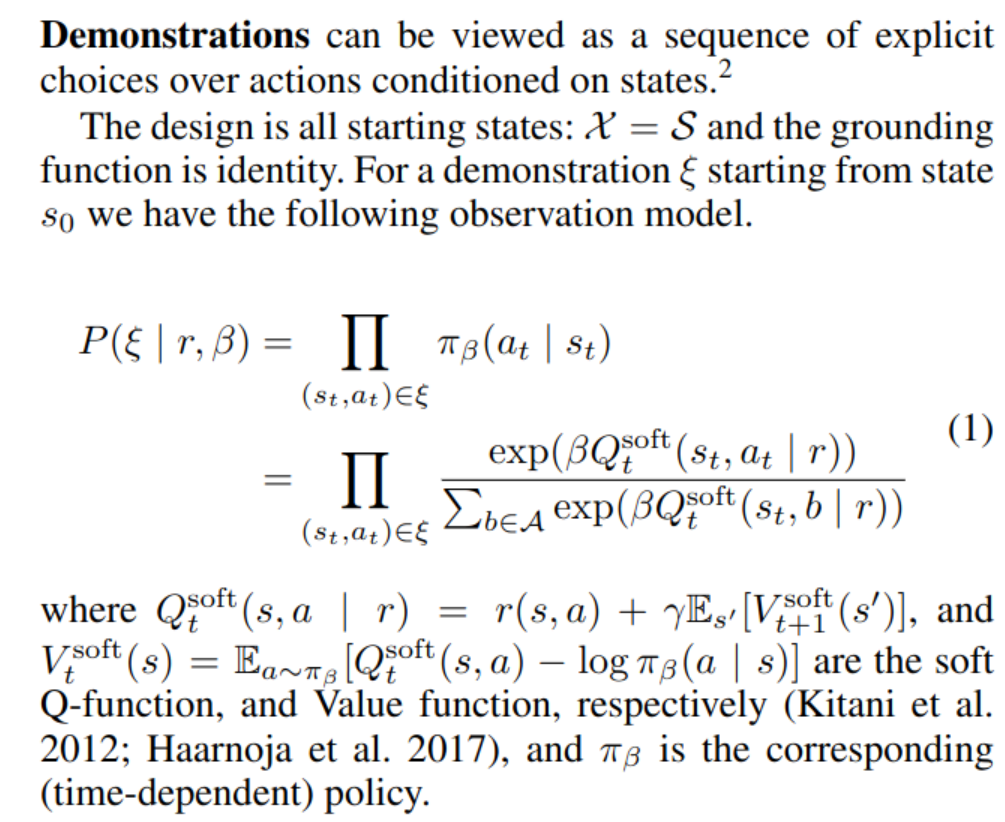[TOC]
- Title: The Effect of Modeling Human Rationality Level on Learning Rewards from Multiple Feedback Types
- Author: Gaurav R. Ghosal et. al.
- Publish Year: 9 Mar 2023 AAAI 2023
- Review Date: Fri, May 10, 2024
- url: arXiv:2208.10687v2
Summary of paper

Contribution
- We find that overestimating human rationality can have dire effects on reward learning accuracy and regret
- We also find that fitting the rationality coefficient to human data enables better reward learning, even when the human deviates significantly from the noisy-rational choice model due to systematic biases
Some key terms
What is Boltzmann Rationality coefficient $\beta$

Apply this Boltzmann rationality coefficient into PPO
|
|
- essentially when the beta is low, the policy will have more exploration
Results
1. remark: underestimating $\beta$ is better than over estimating it
the author provided proof (proposition 1 and proposition 3)


Potential future work
What it did is straightforward, if you do not trust the reward signal, you let the policy to explore more.
